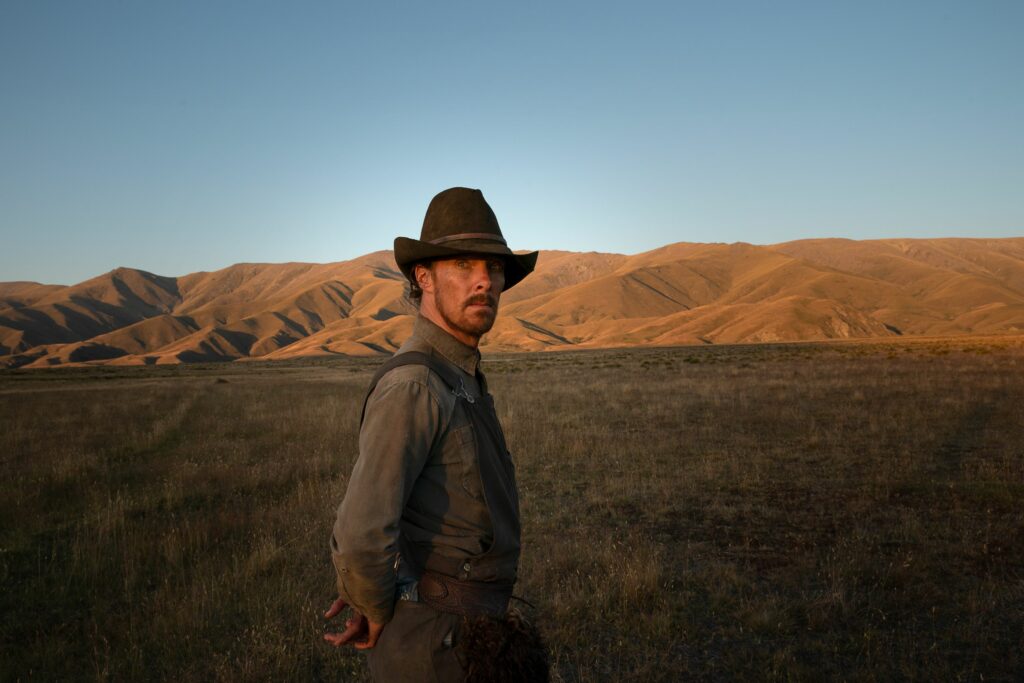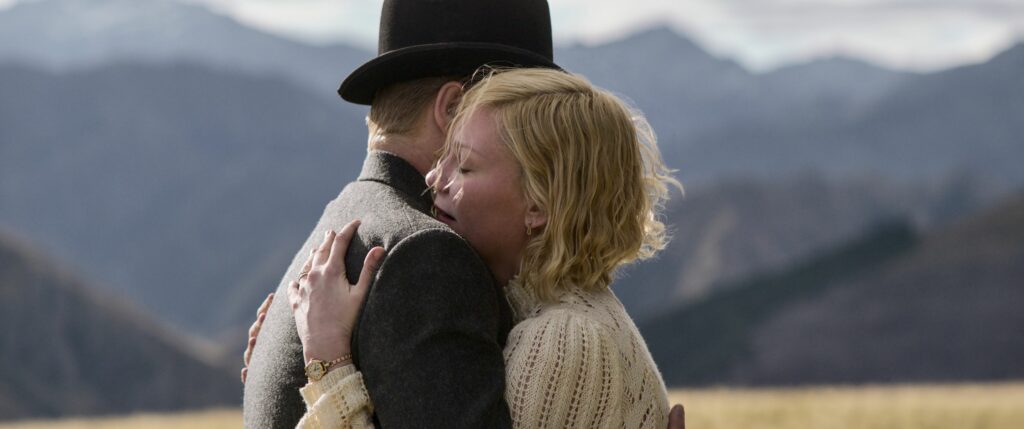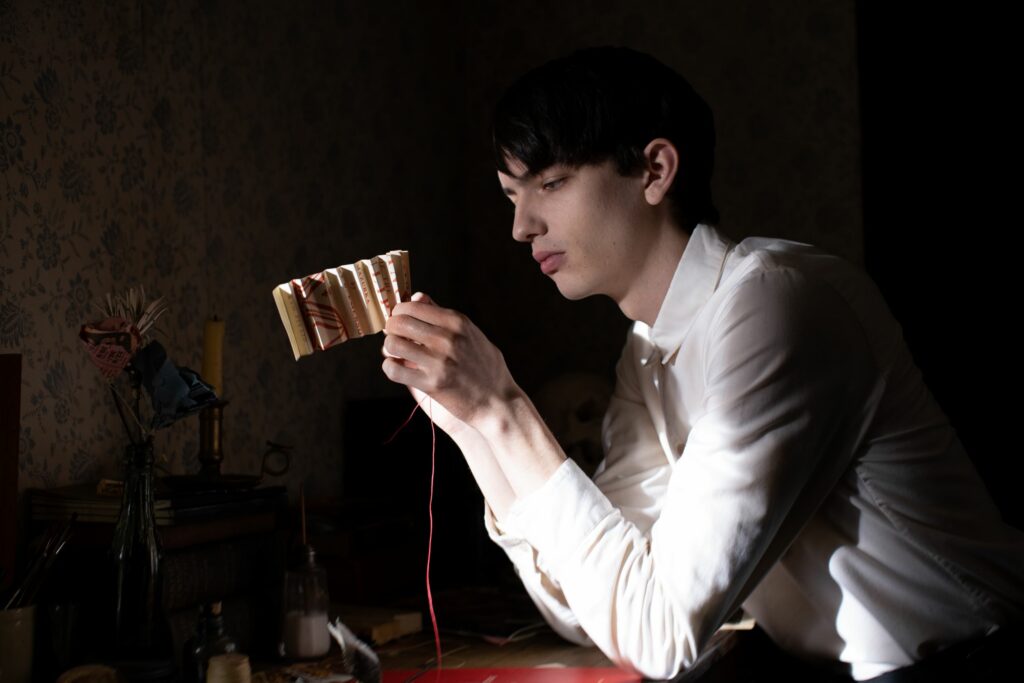Jane Campion’s The Power of the Dog may be reminiscent of earlier works – from Campion herself and from others – yet it amounts to a film that’s distinctive and notable. A historical drama which draws upon Western iconography of the frontier and the cowboy, it subverts the classically masculine genre to unearth something more fragile and calculating from its characters. The Power of the Dog is a fascinating exploration of repressed men in a judgmental world.

Shot in New Zealand, The Power of the Dog is filled with huge, natural backdrops that create a sense of grandeur which the characters cannot hope to challenge; they merely exist by to them, on the edge of civilisation. The film is set in Montana in 1925, placing its story among the last vestiges of the wild west. The cinematography beautifully captures men as tiny parts of their landscapes, while the camerawork presses into close-ups of hands and objects to create a feel for the dirt and labour that the landscapes’ inhabitants wade through.
The capable cast is headed by Benedict Cumberbatch, who plays Phil Burbank, an alpha male confident in his cunning. Cumberbatch gives a relatively broad performance, letting his movie star quality move to the forefront ahead of his more subdued castmates. The main supporting roles belong to Kirsten Dunst, Jesse Plemons, and Kodi Smit-McPhee. Of them all, Smit-McPhee stands out the most in a role that demands uncertainty and evolves drastically over the film. He does a fantastic job at selling the dramatic thrust of the narrative over the film’s epic scope.

The Power of the Dog shares aspects of Campion’s most acclaimed work, The Piano. Both films deal with new marriages in a place far from civilisation, and the subsequent rivalries that build up when such a union brings change to the established order. In The Power of the Dog, Phil deals with his brother’s marriage by seeking to distress the wife through cruel and callous behaviour. He is an observant character, always looking for slights and tiny ways to torture. His intention to wreak havoc on a family he feels wronged by is an established dramatic device, but The Power of the Dog undercuts a lot of predictability with its dark and twisted ending. This is a film of revenge, and Phil is both a victim and a perpetrator.
The Power of the Dog is rarely heavy-handed, preferring narrative subtlety: feelings are implied rather than spoken, and the drama doesn’t step up in intensity, instead remaining remarkably consistent as it goes along. This is a slow and steady movie, designed for us to soak in its characters and worldbuilding. Maintaining its novelistic feel, the film is even split into chapters, though the merits of this artistic choice can be debated.

However, despite all its interesting and subversive ideas, The Power of the Dog is executed via a rather conventional approach. It’s a very respectable effort that demonstrates Campion’s great skill as a filmmaker, but quiet, dark takes on historical narratives have both been done before and done with more excitement. This doesn’t have the ferocious energy of a film like There Will Be Blood, which has a similar setting, nor does it match the intense, lingering repression of desire felt in a film like Beau Travail. The Power of the Dog tells a good story, but it feels a little inert.
Nevertheless, The Power of the Dog is a handsomely mounted movie that becomes a fascinating exploration of masculine fragility and difficult characters. It may not hit as hard as some similar stories, but the strong cast and gorgeous visuals elevate the film beyond its flaws.
The Power of the Dog screened as part of the BFI London Film Festival 2021, and will release in cinemas November 19th ahead of a Netflix release on December 1st.
